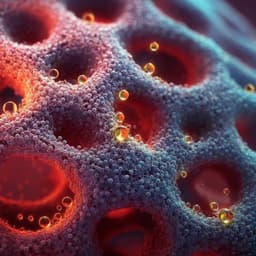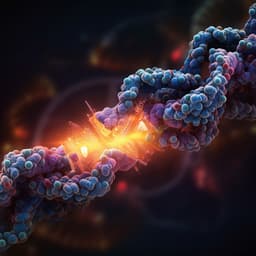
Medicine and Health
Designed endocytosis-inducing proteins degrade targets and amplify signals
B. Huang, M. Abedi, et al.
Discover how researchers including Buwei Huang and Mohamad Abedi designed EndoTags that promote targeted degradation of proteins, overcoming the limitations of traditional therapeutic approaches. These innovative binding proteins enhance endocytosis and tissue-specific targeting, showing great therapeutic potential in cancer treatment and beyond.
Playback language: English
Related Publications
Explore these studies to deepen your understanding of the subject.







